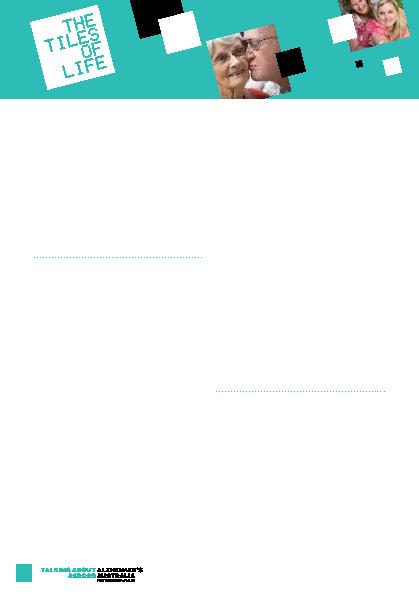
with thematic analysis feeding back into
subsequent groups. This is currently being
undertaken with one group yet to be
conducted. The findings will be completed and
presented at this conference.
multi-disciplinary dementia outreach service in
the Australian rural context.
Barbara Horner
Alzheimer's Australia WA, 2 Centre for
Research for Ageing, Curtin University
residential aged care is being met in Australia
and in other high-income countries by migrant
staff, many from culturally and linguistically
(CaLD) backgrounds.
· Describe their experiences when working
a multicultural work environment.
with over 50 staff from six participating
residential aged care facilities. Participants
comprise direct care staff from CaLD and
non-CaLD backgrounds, representative from
with dementia.
care staff represent a diversity of cultures
and skills, including professional qualifications
which are not recognised in Australia. Previous
understandings of dementia, respect for elders
and approaches to care in their country of birth
influence their approach to caring for people
with dementia. Management and non-CaLD
staff and family representatives, attribute
positive qualities to particular cultural groups in
relation to their interactions with residents with
dementia.
language is identified by management as a
barrier to recruitment of CaLD staff in some
facilities, particularly as written documentation
is linked to funding. CaLD staff identify
communication as an issue. In particular,
colloquial language and unstated "norms" of
communication and care provision present
difficulties to new employees. CaLD staff
identify a need for cultural awareness-raising
for CALD and non-CALD staff.
CREatiNg multimEdia REsOuRCEs
Alzheimers Australia NSW
using social streams to engage with and gain
the participation of members of culturally
and linguistically diverse communities in